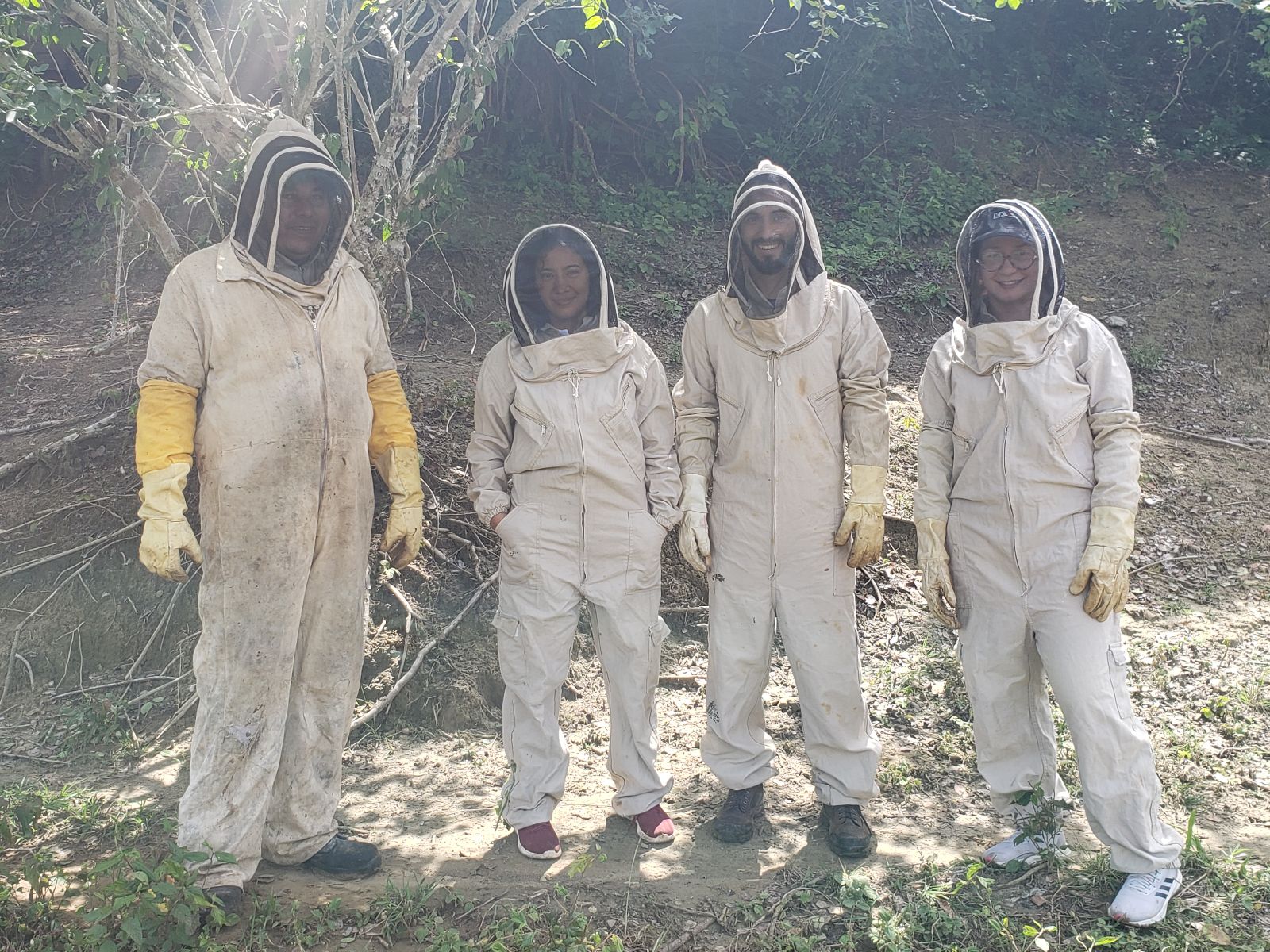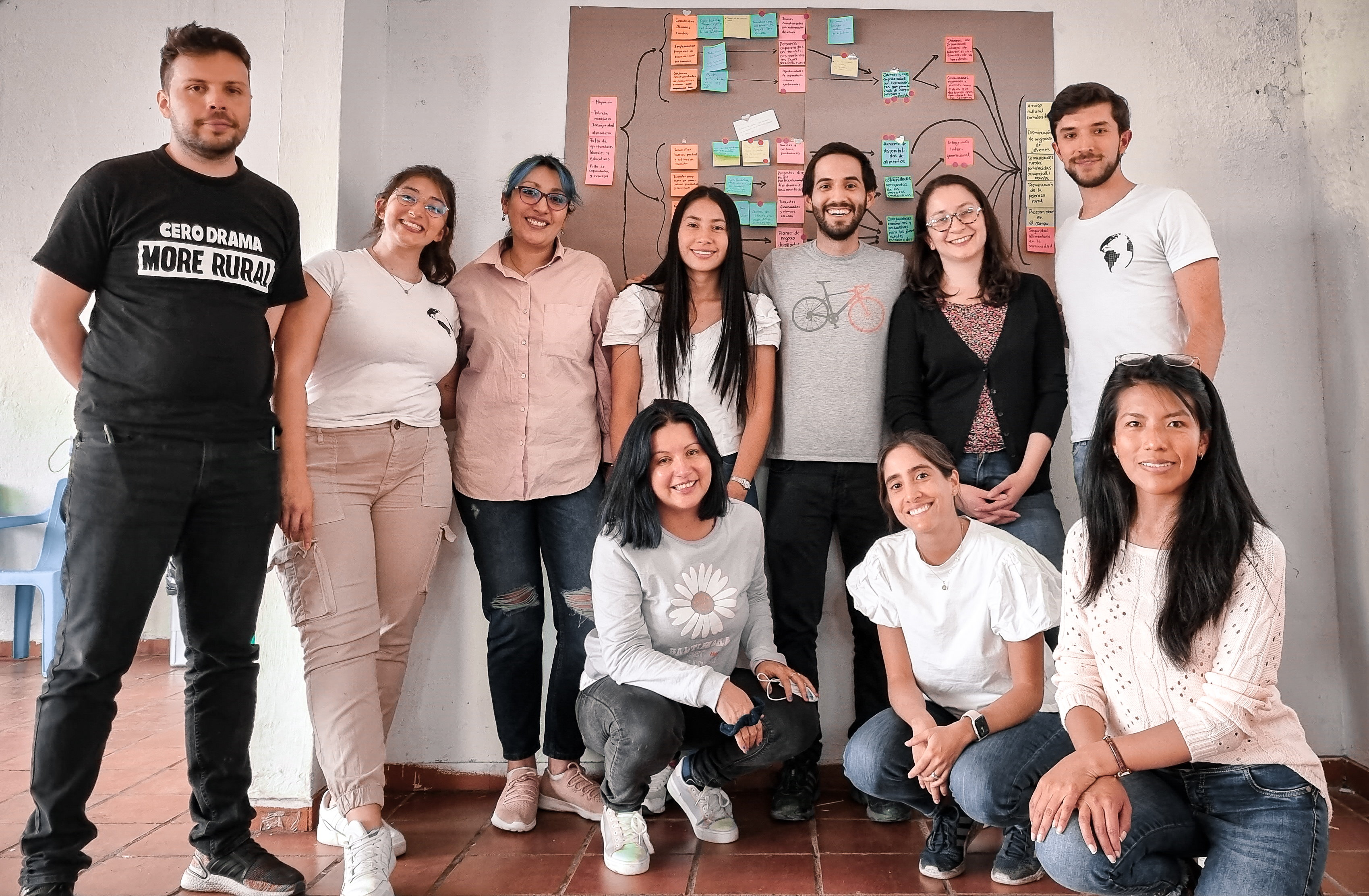Bridging the Gap: IPA Colombia's Pro-Bono Initiative Empowers Colombian Non-Profits
As director of the Fundación Iguaraya, Gabriela Grisales understood the importance of conducting impact evaluations to measure an organization’s effectiveness. Her foundation wanted to better understand the impact of the workshops they offer to the community, including teaching English to young people and entrepreneurship to local tourism providers. But Grisales didn’t know where to start. That changed when she saw a call for proposals on Twitter and Nadoka about IPA Colombia’s pro-bono initiative, called ConsultIPA.
"We applied to the ConsultIPA initiative to develop better ways to measure our impact, to carry out timely monitoring and evaluation of our processes, and to develop more effective financing strategies for our growing organization,” said Grisales.
Like Fundación Iguaraya, more organizations in Colombia are recognizing the importance of making decisions based on data and evidence. Establishing a monitoring, evaluation, and learning (MEL) system with clear objectives and indicators is essential to assess the performance of programs and make necessary adjustments. However, starting a MEL system can be a challenge, especially for organizations lacking the necessary resources or technical knowledge.
Launched in 2021, ConsultIPA draws on IPA Colombia’s 12 years of experience in generating evidence to design effective programs that work within the local context. The staff at IPA Colombia decided to pursue this initiative to give back to the community by teaching what they know how to do best: measuring impact.
Helping a Fellow Non-Profit Providing Livelihood to the Local Community
Planeta Rural is another local non-profit that has benefited from ConsultIPA. The organization empowers youth in rural areas of Colombia through education and agriculture programs. Its goal is to reduce rural poverty and prevent youth migration from the countryside to the cities. According to the World Bank Job Diagnostic Report, only about 20 percent of Colombians live in rural areas and those who do face limited employment opportunities. In 2019, only 7.6 percent of the working-age population in rural areas had a formal waged job, compared to 24 percent in urban areas.

Planeta Rural seeks to provide economic development in rural areas of Colombia by implementing projects such as beekeeping (apiculture). But while demand was high for Planeta Rural’s interventions, it was difficult for the organization to measure its effectiveness or use evaluations to shape future projects. Nazly Martinez, a co-founder of Planeta Rural, was happy to find out that her organization would be partnering with ConsultIPA to improve its use of monitoring, evaluation, and learning.
“We have always known where we want to go, but, thanks to ConsultIPA’s support, we have now found the most effective and efficient route to get us there,” Martinez said.
Her co-founder, Alejandro Martinez, shared her enthusiasm. “Thinking about measuring our program was overwhelming for us. We always wondered how to measure our outcomes. After ConsultIPA, we were able to design a logical monitoring, evaluation, and learning system that allows us to have intermediate outcomes and to better organize our MEL activities,” he said.
The Applications Process
ConsultIPA starts its annual application process with a call for proposals issued in mid-to-late March. It uses IPA’s social media accounts (LinkedIn, Twitter, and Facebook) and Nodoka—a platform for the exchange of resources, knowledge, and information in the social sector in Latin America and the Caribbean—to promote its consultation services, which are provided free of charge.
In the two years since the initiative started, 30 organizations have applied. In 2022, more than 15 organizations applied from various fields including women’s rights, caring for victims of armed conflict, and environmental protection. The IPA Colombia team then conducted a selection process to better understand the organizations and their projects, teams, and motivations. Fundación Iguaraya and Planeta Rural were selected to receive MEL training in 2021 and 2022, respectively.

Fundación Iguaraya and Planeta Rural were selected for their willingness to implement a robust MEL system, having a stable team determined to implement changes and work with the ConsultIPA team, having an established presence in the area where they work, and meeting all eligibility requirements.
Once an organization is selected, its work with ConsultIPA takes place in three phases. First, IPA volunteers conduct interviews with the organization's staff and program participants and analyze internal documents to understand the organization’s operation and identify variables that affect MEL.
Second, IPA holds three virtual workshops to set expectations for programs and activities. The final phase consists of tailoring recommendations based on the organization's resources and capacities to implement a MEL model. Such recommendations include assigning MEL responsibilities to specific positions within the organization and creating indicators to monitor progress.
Implementing the recommendations provided by ConsultIPA has helped Fundación Iguaraya to better use data and structure team planning.
“We definitely fully integrated the IPA report into our annual planning, and it was a great resource,” Grisales said.
This year, IPA Colombia will hold the third edition of ConsultIPA; NGOs from across Colombia are expected to apply. The application process is currently open. Colombian nonprofit organizations interested in implementing a MEL system should refer to ConsultIPA’s Call for Proposals page.












